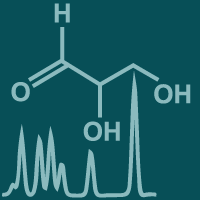Topic Menu
► Topic MenuTopic Editors



"Metabolites" as Metabolomics for Neuropsychiatric Diseases
Topic Information
Dear Colleagues,
The diagnosis of psychiatric disorders is based solely on symptoms, and a lack of understanding of the molecular pathogenesis is a major challenge that must be overcome in the future. Furthermore, drug treatment guidelines use a one-size-fits-all approach to treat each disorder, despite the known heterogeneity of clinical symptoms and prognosis of psychiatric disorders. The limited effectiveness of treatment emphasizes the need for precision medicine in psychiatry and is referred to as precision psychiatry. To practice precision psychiatry, it is essential to research and develop multiple omics-based biomarkers to accurately determine phenotypes. Metabolomics, the endpoint of the omics cascade, detects changes in metabolites at the systems level of biological pathways, thereby providing insight into the mechanisms underlying various physiological states and pathological conditions. Metabolomics is a promising tool for precision psychiatry and holds great promise for both biomarker discovery and the elucidation of molecular mechanisms underlying psychiatric disorders.
Prof. Dr. Reiji Yoshimura
Prof. Dr. Hiroshi Kunugi
Dr. Takahiro Kato
Dr. Naomichi Okamoto
Topic Editors
Keywords
- metabolomics
- neuropsychiatric diseases
- biomarkers
- precision medicine
- molecular pathogenesis
Participating Journals
| Journal Name | Impact Factor | CiteScore | Launched Year | First Decision (median) | APC |
|---|---|---|---|---|---|

BioChem
|
- | - | 2021 | 24.1 Days | CHF 1000 |

Biology
|
3.6 | 5.7 | 2012 | 16.1 Days | CHF 2700 |

Biomolecules
|
4.8 | 9.4 | 2011 | 16.3 Days | CHF 2700 |

Journal of Developmental Biology
|
2.2 | 4.1 | 2013 | 19.6 Days | CHF 1800 |

Metabolites
|
3.4 | 5.7 | 2011 | 13.9 Days | CHF 2700 |

MDPI Topics is cooperating with Preprints.org and has built a direct connection between MDPI journals and Preprints.org. Authors are encouraged to enjoy the benefits by posting a preprint at Preprints.org prior to publication:
- Immediately share your ideas ahead of publication and establish your research priority;
- Protect your idea from being stolen with this time-stamped preprint article;
- Enhance the exposure and impact of your research;
- Receive feedback from your peers in advance;
- Have it indexed in Web of Science (Preprint Citation Index), Google Scholar, Crossref, SHARE, PrePubMed, Scilit and Europe PMC.

